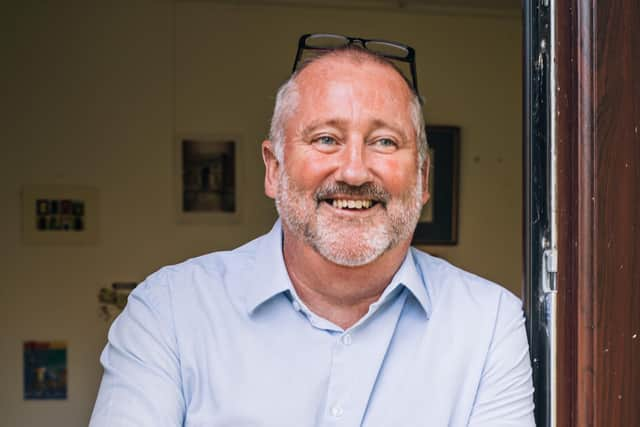The importance of self-awareness in business - comment


They called it “Johari’s Window,” with the word Johari deriving from a combination of their first names. In 2000, author and philosopher Charles Handy developed a leadership and management tool based on Luft and Ingham’s model and called it “Johari House”, aiming to develop self-awareness. The Johari House is Handy’s analogy for a person, and he developed a model that can be applied to anyone to become more self-aware.
Within the Johari House there are four rooms, each representing the four parts of any individual. Room one is the part of you that both you and others see – the open self. For example, you may be incredibly organised. You know that, and everyone around you knows it too. Room two contains the parts of you that only others see; you yourself are not aware of them – this is the blind self.
Advertisement
Hide AdAdvertisement
Hide AdIn Room three is the subconscious part of you, which is seen neither by you nor by others – the unknown self. This is the part that traditional psychologists like to talk about: Freud’s area! Room four is your private space, the part you know but keep from others – the hidden self. This is the room where you thoughts you would not tell anyone else.
In my view, room two is the most fascinating as it can prevent you becoming a better and effective leader, entrepreneur or businessperson. Your blind self contains aspects of your behaviour and personality that can either hold you back, or propel you forward. Everyone has blind spots or invisible barriers. These are your behaviours that you don’t understand, or you fail to appreciate the impact they have on yourself or others.
In her book Fearless Leadership, Loretta Malandro identifies eight behavioural blind spots that can be your Achilles heel and stop you becoming a better and effective person. These include having an “I know” attitude. You think you’re always right and those who disagree with you are wrong; being insensitive about your behaviour’s effect on others. You judge others not by their intentions, but by their actions.
Avoiding difficult conversations. You avoid stressful situations; going it alone. You feel you need to get things done on your own; blaming others or circumstances. You avoid the need to take accountability; don’t stick to commitments. You regularly show up late for meetings, for example; conspiring against others. You talk negatively behind people’s backs; not taking a stand. You don’t speak up because of how it could affect you.
Clarity
The following will hopefully help you to gain clarity around your blind spots, and understand how to manage them much better. Find someone you really trust. Understanding and accepting that you have blind spots is the first step. Find someone who is insightful enough to see clearly what you cannot see and who is willing to speak truth to you.
Meet people who have different views, experiences or perspective. Examine your past to identify patterns. Examine some successes in your life. What behaviours did you exhibit that allowed you to gain that success? Are you now embarrassed about how you might have conducted yourself and how your treated people close to you that led to your success?
Identify your triggers. In his bestselling book Triggers, leadership expert Marshall Goldsmith explains that every waking moment is filled with people, events and circumstances – triggers – that can shape how we act or react. When we master our triggers, we master our responses and make them work for us, not against us.
Slowly, you will become more aware of your blind-self characteristics. This will let you implement strategies to help you act, and react, far better to a wide range of challenges and circumstances, and become more in control of you daily life.
Advertisement
Hide AdAdvertisement
Hide AdNeil Francis is the author of Positive Thinking, The Entrepreneur’s Book and his latest book Inspired Thinking. He is also chairman of the digital agency Pogo Studio.
A message from the Editor:
Thank you for reading this story on our website. While I have your attention, I also have an important request to make of you.
The dramatic events of 2020 are having a major impact on many of our advertisers - and consequently the revenue we receive. We are now more reliant than ever on you taking out a digital subscription to support our journalism.
Subscribe to scotsman.com and enjoy unlimited access to Scottish news and information online and on our app. Visit https://www.scotsman.com/subscriptions now to sign up. By supporting us, we are able to support you in providing trusted, fact-checked content for this website.
Joy Yates
Editorial Director
Comments
Want to join the conversation? Please or to comment on this article.